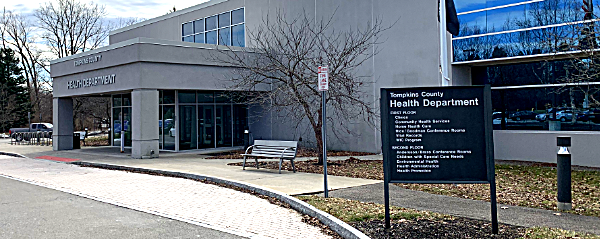- By Samantha Hillson
- News
 Print
Print 
According to the U.S. Drought Monitor, as a result of the prolonged period of hot and dry weather, Tompkins County and much of the Finger Lakes are experiencing moderate drought conditions..
"The Health Department is working closely with our public water supplies to monitor the situation. We will continue to update the public if additional conservation methods are needed. With little precipitation in the forecast, we encourage all residents to take measures to conserve water," stated Frank Kruppa, Public Health Director. "Health and safety are a priority during the drought, and as the COVID-19 pandemic, continues please wash your hands with soap and water for 20 seconds and maintain cleaning protocols."
Municipal Water Users on Surface Water: Fall Creek and Six Mile Creek, which supply drinking water to Cornell University and the City of Ithaca, are at levels well below normal. Cornell University put out a limited water use advisory on 9/17/2020, and the City of Ithaca issued an advisory on 9/22/2020.The distribution systems for Cornell, the City of Ithaca and the Southern Cayuga Intermunicipal Water Commission (SCLIWC), commonly called Bolton Point, allow drinking water to be transferred between water systems. Bolton Point is currently reporting adequate water supplies.
Private Water Users and Municipal Water Users on Groundwater: USGS data shows groundwater levels are lower than normal and steadily dropping. We are concerned that groundwater levels will continue to fall as the drought continues, creating water supply issues for users on wells. For individuals on private wells, take measures to conserve water and contact Tompkins County Environmental Health at 607-274-6688 or This email address is being protected from spambots. You need JavaScript enabled to view it. if you have questions or concerns.
Water Conservation Tips:
- Fix leaking faucets and toilets.
- Install water-saving plumbing fixtures. Modern post 1994 fixtures use less than half the water of pre-1980 fixtures.
- Run dishwashers and washing machines only when full.
- Turn off the tap when brushing your teeth or shaving.
- Take shorter showers.
- Avoid watering lawns, washing vehicles and other non-essential usages.
- Be conservative about your overall daily use.
v16i38



